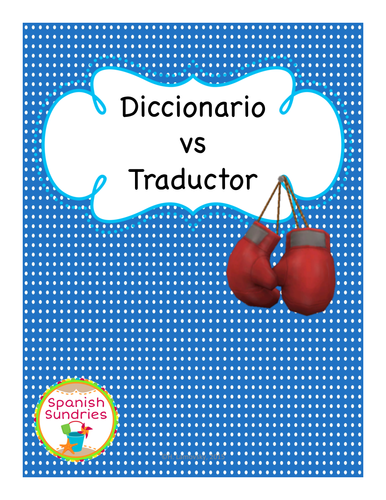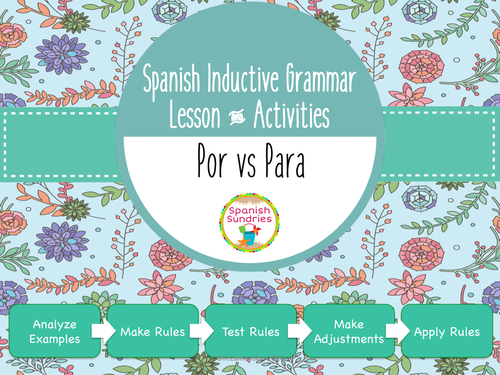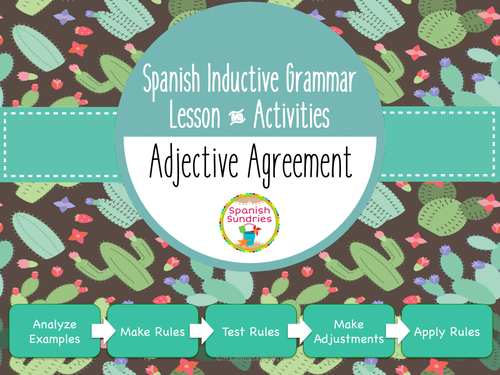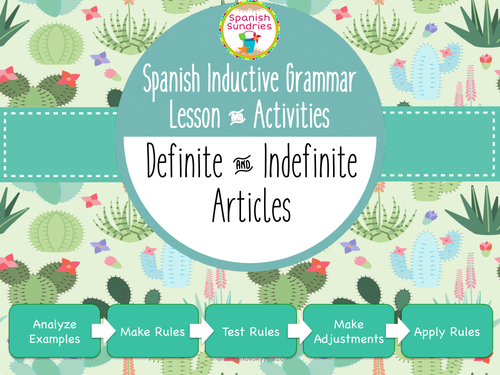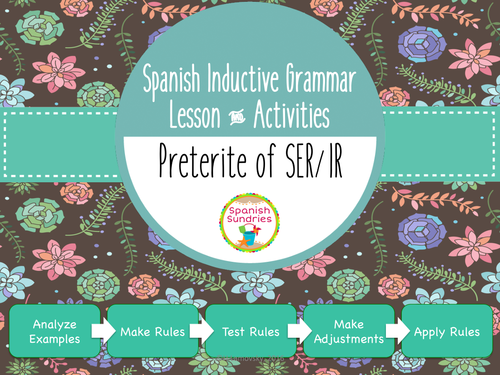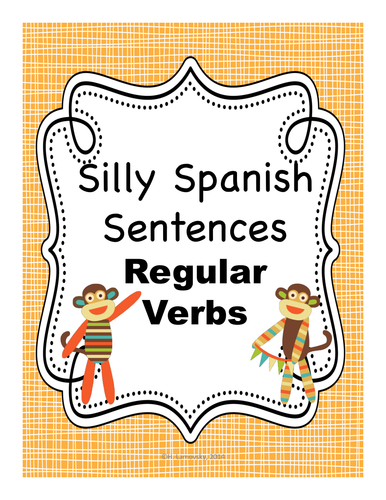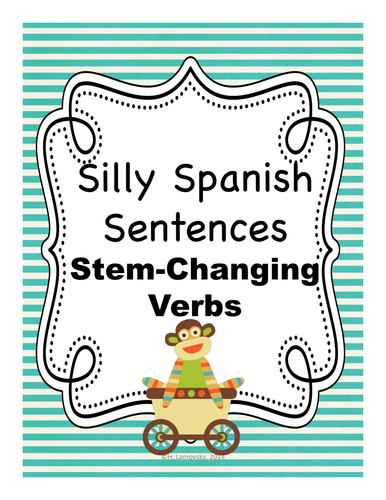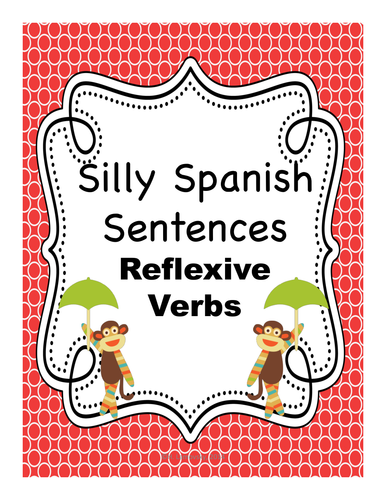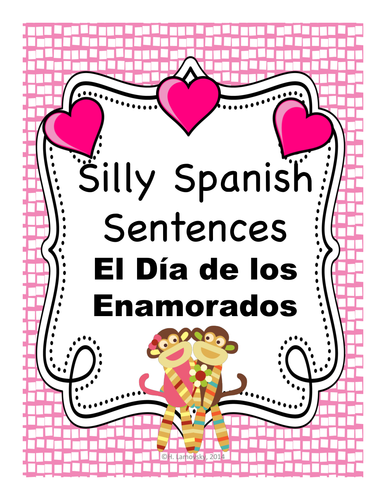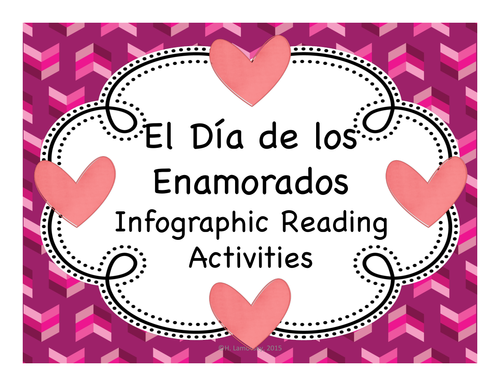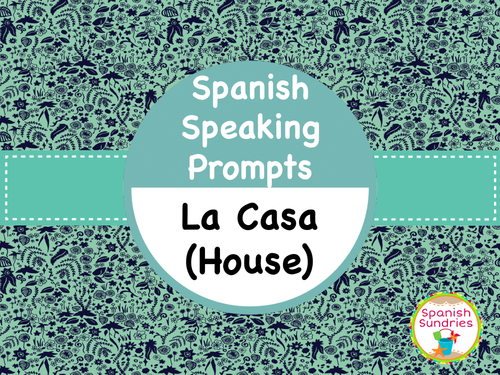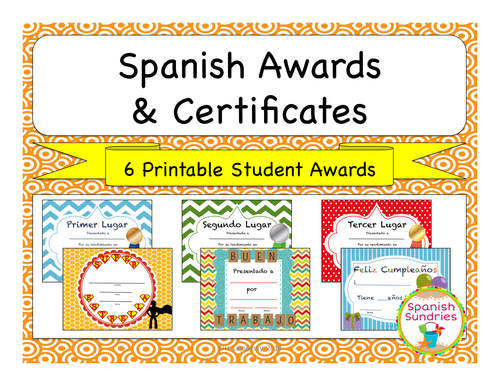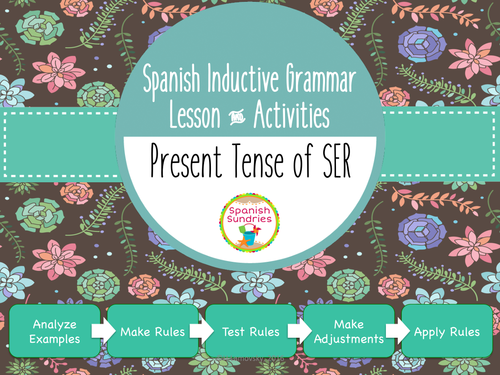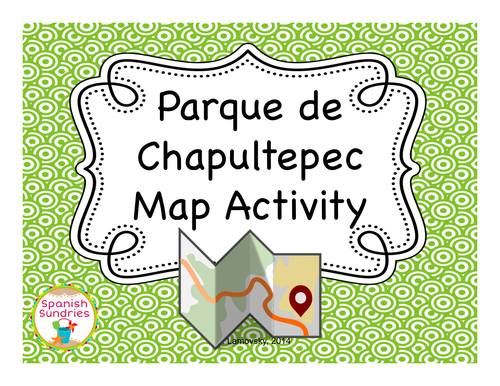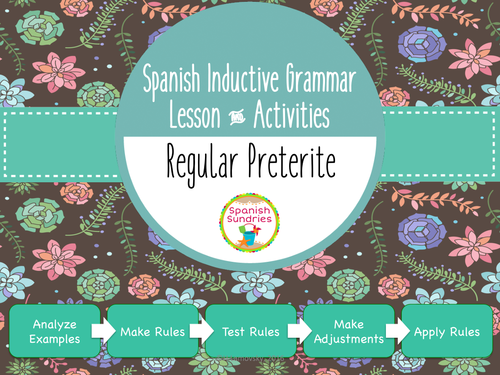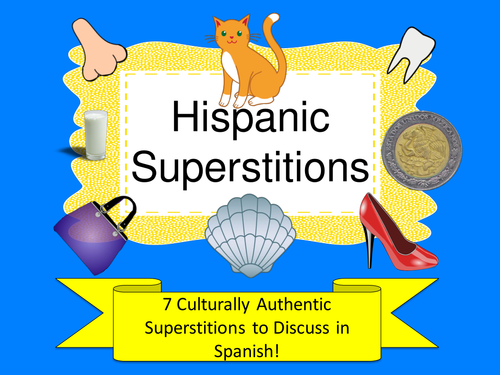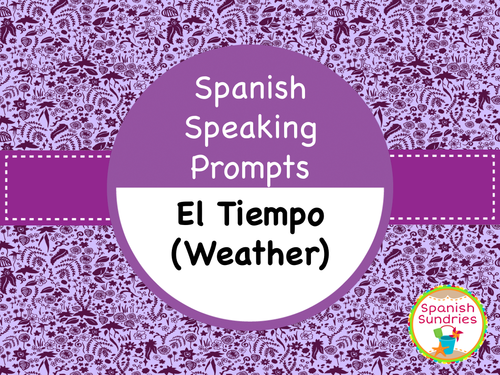
320Uploads
91k+Views
4k+Downloads
Languages

Spanish Dictionary Skills: Dictionary vs Translator
This activity will help beginning or advanced students understand the limitations of language translators and encourage them to build fluency by using these and other tools for the right reasons.
The temptation of an online translator is irresistible to many new language students who lack the patience or drive that it takes to learn another language. Not only will this lesson help your students to see why you WILL KNOW if they use a translator, but it will help you to set ground rules as to the use of these and other tools both inside and outside of the classroom.
Students will begin this activity by learning about several online tools that may help students studying a foreign language and the appropriate use of each. Then they will compare/contrast two of those tools - an online Spanish/English dictionary and Google Translate - by first looking up underlined words in 30 sentences in the dictionary and then comparing that to what the translator says. By the end of the lesson, students will clearly see situations in which the translator was not able to make correct decisions on word choice and the increased control that using a dictionary offers.
This Product Includes:
-Foreign Language Student Toolbox Handout
-Dictionary vs Translator Activity
-Questions for Discussion & Reflection

Spanish Inductive Grammar Lesson - Por vs Para
This inductive grammar lesson leads students to discover the rules behind using the words POR and PARA in a variety of situations in Spanish.
Students will follow a 4 step inductive process to make learning grammar more meaningful.
Step 1: Students will see examples of correct usage and create rules based on what they observe.
Step 2: Students will test those rules against additional examples of correct language usage.
Step 3: Students will make adjustments and additions to their rules based on more observations. They will summarize what they have discovered by creating their own graphic organizer using the included template.
Step 4: Students will apply the rules while producing their own language.
These scaffolded activities promote higher order thinking skills and represent the method of grammar instruction that is recommended by national organizations like ACTFL.

Spanish Inductive Grammar Lesson: Adjective Agreement
This inductive grammar lesson leads students to discover the rules behind adjective agreement in Spanish.
Students will follow a 4 step inductive process to make learning grammar more meaningful.
Step 1: Students will see examples of correct usage and create rules based on what they observe.
Step 2: Students will test those rules against additional examples of correct language usage.
Step 3: Students will make adjustments and additions to their rules based on more observations.
Step 4: Students will apply the rules while producing their own language.
These scaffolded activities promote higher order thinking skills and represent the method of grammar instruction that is recommended by national organizations like ACTFL.

Spanish Inductive Grammar Lesson: Definite & Indefinite Articles
This inductive grammar lesson leads students to discover the rules behind the correct usage of definite and indefinite articles in Spanish.
Students will follow a 4 step inductive process to make learning grammar more meaningful.
Step 1: Students will see examples of correct usage and create rules based on what they observe.
Step 2: Students will test those rules against additional examples of correct language usage.
Step 3: Students will make adjustments and additions to their rules based on more observations.
Step 4: Students will apply the rules while producing their own language.
These scaffolded activities promote higher order thinking skills and represent the method of grammar instruction that is recommended by national organizations like ACTFL.

Spanish Inductive Grammar Lesson: Preterite Tense of Ser & Ir
This inductive grammar lesson leads students to discover the rules behind using the verbs SER and IR in the preterite tense in Spanish.
Students will follow a 4 step inductive process to make learning grammar more meaningful.
Step 1: Students will see examples of correct usage and create rules based on what they observe.
Step 2: Students will test those rules against additional examples of correct language usage.
Step 3: Students will make adjustments and additions to their rules based on more observations.
Step 4: Students will apply the rules while producing their own language.
These scaffolded activities promote higher order thinking skills and represent the method of grammar instruction that is recommended by national organizations like ACTFL.

Silly Spanish Sentence Writing Activity - Regular Present Tense Verbs
Silly Spanish Sentence Activities are a great way to motivate students and spice up your typical boring grammar drills while building vocabulary.
These activities promote both interpretive reading and presentational writing skills. They provide a structure that will help struggling students while at same time allowing more advanced students to add details according to their abilities. This type of self-differentiation is very helpful in classes where students are at a variety of stages in their fluency and language acquisition.
Students will choose 1 word each from a series of word boxes with the goal of creating funny sentences. They will need to apply grammatical concepts like conjugation and sentence structure while at the same time recognizing key vocabulary items. When they have created 10 sentences, they will choose a favorite and write it on the tear-off section of the activity.
This set of Silly Spanish Sentence activities focuses specifically on regular ar, er, and ir verbs and can be used to work on regular verbs in just about any tense (present, preterite, imperfect, future, conditional, etc.
This Product Includes:
-Guide for Educators with Tips and Extension Activity Ideas
-AR Verb Silly Sentence Activity
-ER Verb Silly Sentence Activity
-IR Verb Silly Sentence Activity

Silly Spanish Sentence Writing Activities - Stem Changing Verbs
Silly Spanish Sentence Activities are a great way to motivate students and spice up your typical boring grammar drills while building vocabulary.
These activities promote both interpretive reading and presentational writing skills. They provide a structure that will help struggling students while at same time allowing more advanced students to add details according to their abilities. This type of self-differentiation is very helpful in classes where students are at a variety of stages in their fluency and language acquisition.
Students will choose 1 word each from a series of word boxes with the goal of creating funny sentences. They will need to apply grammatical concepts like conjugation and sentence structure while at the same time recognizing key vocabulary items. When they have created 10 sentences, they will choose a favorite and write it on the tear-off section of the activity.
This set of Silly Spanish Sentence activities focuses specifically on present tense stem-changing verbs.
This Product Includes:
-Guide for Educators with Tips and Extension Activity Ideas
-O-->UE Verb Silly Sentence Activity
-E-->IE Verb Silly Sentence Activity
-E-->I Verb Silly Sentence Activity

Silly Spanish Sentences - Reflexive Verbs
Silly Spanish Sentence Activities are a great way to motivate students and spice up your typical boring grammar drills while building vocabulary.
These activities promote both interpretive reading and presentational writing skills. They provide a structure that will help struggling students while at same time allowing more advanced students to add details according to their abilities. This type of self-differentiation is very helpful in classes where students are at a variety of stages in their fluency and language acquisition.
Students will choose 1 word each from a series of word boxes with the goal of creating funny sentences. They will need to apply grammatical concepts like conjugation and sentence structure while at the same time recognizing key vocabulary items. When they have created 10 sentences, they will choose a favorite and write it on the tear-off section of the activity.
This set of Silly Spanish Sentence activities focuses specifically on reflexive verbs.
This Product Includes:
-Guide for Educators with Tips and Extension Activity Ideas
-Daily Routine Verb Silly Sentence Activity
-Feeling Reflexive Verbs Silly Sentence Activity
-Reflexive Verbs as Infinitives Silly Sentence Activity

Latin Music Webquest
This webquest is perfect for introducing students to popular music in the Latino culture. It can be used with any level of language student as it has a cultural focus rather than being strictly focused on the target language. It also makes a great sub plan if students have internet access or if your classroom has 1:1 devices.
In this webquest, students begin by finding out the top 10 latin songs for the current week, recording the information they find, and responding to some simple questions. Next, they choose three of the top 10 artists and give some basic biographical information (name, origin, age, musical style) about each one in Spanish. Finally, students delve deeper into these three artists by finding information about their current tour, ticket prices, and cities they will be visiting.
This webquest raises student awareness of the increased role of Spanish language music in our own culture and country.
If you like this product, you may be interested in some of the many song activities that I have created to accompany popular music in the target language.

Spanish Speaking Prompts - Daily Routine (Rutina Diaria)
These speaking prompts are designed to move students from asking/answering basic questions in Spanish to responding to increasingly complicated prompts around the theme of Daily Routine (Rutina Diaria).
There are 4 categories of prompts that ask students to move between different levels of communication including the presentation of facts, opinions, feelings, and towards complete openness in social situations.
Category A – Yes or No Questions, Either/Or Questions
Category B – Additional Information Questions
Category C – Expressing Opinions and Feelings
Category D – Situational Speaking Prompts & Extended Response
You may approach these prompts by moving students through them from Categories A-D in a sequential manner, or you may use them as an opportunity for easy differentiation between the various proficiency levels of Novice to Intermediate learners that may be present in your classroom.
Although these prompts have been designed as speaking prompts, they can also be used as writing prompts for individual practice, homework, or assessment.
Ideas for Usage:
-Pair students for one on one practice.
-Form small groups and have students interview a student.
-Invite a guest speaker or native speaking student to your classroom and have students select questions to ask them during a Q&A session
-Have students write additional prompts or variations of existing prompts on the blank cards provided
-Pull 1 prompt from each category for a challenging oral proficiency assessment
-Have students develop role plays based on the situational prompts
This Product Includes
-Guide for Educators
-15 Category A Prompts
-15 Category B Prompts
-9 Category C Prompts
-6 Category D Prompts
-Blank Cards to allow for creation of additional questions if desired

Silly Spanish Sentence Writing Activity - Valentine's Day
This is not your typical Valentine's Day activity! Designed with teens in mind, these activities will get them creating sentences in Spanish about everything there is to love and hate about this holiday!
Students will choose 1 word each from a series of word boxes with the goal of creating funny sentences. They will need to apply grammatical concepts like conjugation and sentence structure while at the same time recognizing key vocabulary items. When they have created 10 sentences, they will choose a favorite and write it on the tear-off section of the activity.
Silly Spanish Sentence Activities are a great way to motivate students and spice up your typical boring grammar drills while building vocabulary.
These activities promote both interpretive reading and presentational writing skills. They provide a structure that will help struggling students while at same time allowing more advanced students to add details according to their abilities. This type of self-differentiation is very helpful in classes where students are at a variety of stages in their fluency and language acquisition.
This set of Silly Spanish Sentence activities focuses specifically on words related to el Día de los Enamorados, el Día de San Valentín or el Día del Amor y Amistad.
This Product Includes:
-Guide for Educators with Tips and Extension Activity Ideas
-Me Gusta el Día de los Enamorados Sentence Creation Activity
-Me Disgusta el Día de los Enamorados Sentence Creation Activity

El Día de los Enamorados / San Valentín Infographic Reading Activities
Do you want to teach students about Valentine's Day traditions in the target culture without a boring lecture? Do you always see awesome infographics and you just don't know what to do with them?
This product contains 2 different reading activities to accompany infographics available for free on the Internet. Due to their visual nature, infographics are a great way to get students reading interesting, age appropriate content even at a beginner level. The activities included for each infographic also align with the ACTFL goals for interpretive reading at the Novice level.
This product also contains a questionnaire, in Spanish, that your students can respond to and create their own class infographic with the information they collect from one another.
Your students will be encouraged by how much they can actually understand AND they will be building their interpretive reading skills and cultural competency while they do it!
This Product Includes:
1. Links to 2 different infographics available on the Internet*
2. 2 Reading Activities (1 per infographic)
3. 2 Writing Prompts (1 per infographic)
4. 1 Questionnaire and Infographic Creation Activity
Infographic Topics Include:
1. San Valentín
2. El Amor Juvenil en México
*Note: Due to copyright, the actual infographics can not be included with the product, but their direct links can and are*

Spanish Speaking Prompts - La Casa (House)
These speaking prompts are designed to move students from asking/answering basic questions in Spanish to responding to increasingly complicated prompts around the theme of La Casa (The House).
There are 4 categories of prompts that ask students to move between different levels of communication including the presentation of facts, opinions, feelings, and towards complete openness in social situations.
Category A – Yes or No Questions, Either/Or Questions
Category B – Additional Information Questions
Category C – Expressing Opinions and Feelings
Category D – Situational Speaking Prompts & Extended Response
You may approach these prompts by moving students through them from Categories A-D in a sequential manner, or you may use them as an opportunity for easy differentiation between the various proficiency levels of Novice to Intermediate learners that may be present in your classroom.
Although these prompts have been designed as speaking prompts, they can also be used as writing prompts for individual practice, homework, or assessment.
Ideas for Usage:
-Pair students for one on one practice.
-Form small groups and have students interview a student.
-Invite a guest speaker or native speaking student to your classroom and have students select questions to ask them during a Q&A session
-Have students write additional prompts or variations of existing prompts on the blank cards provided
-Pull 1 prompt from each category for a challenging oral proficiency assessment
-Have students develop role plays based on the situational prompts
This Product Includes
-Guide for Educators
-15 Category A Prompts
-15 Category B Prompts
-9 Category C Prompts
-6 Category D Prompts
-Blank Cards to allow for creation of additional questions if desired

Spanish Awards & Certificates
These awards are great for recognizing students for achievements both inside and outside of the classroom. There are spaces on each award/certificate to fill in specifics so that the templates remains flexible for all the different things a teacher may want to use them for.
Included are 6 different awards or certificates;
-Feliz Cumpleaños (Happy Birthday)
-Superestrella (Superstar)
-Buen Trabajo (Good Work)
-Primer Lugar (First Place)
-Segundo Lugar (Second Place)
-Tercer Lugar (Third Place)

Spanish Inductive Grammar Lesson: Present Tense of Ser
This inductive grammar lesson leads students to discover the rules behind using the verb SER in the present tense in Spanish.
Students will follow a 4 step inductive process to make learning grammar more meaningful.
Step 1: Students will see examples of correct usage and create rules based on what they observe.
Step 2: Students will test those rules against additional examples of correct language usage.
Step 3: Students will make adjustments and additions to their rules based on more observations.
Step 4: Students will apply the rules while producing their own language.
These scaffolded activities promote higher order thinking skills and represent the method of grammar instruction that is recommended by national organizations like ACTFL.

Prepositional Phrase Map Activity
This activity will assist you in helping students to practice prepositional phrases (lejos de, cerca de, a la derecha de, etc) as well as directional phrases (al norte de, al sur de, al oeste de, etc.).
Students will use a map of Chapultepec Park in Mexico City to complete the accompanying activities. The first activity requires students to complete sentences with the correct directional phrase. The second activity requires them to give directions to a nearby place on the map in Spanish.
Included in This Product:
-Map of Chapultepec Park
-Directional Phrase Activity
-Answering Questions Activity
-Answer Key

Spanish Inductive Grammar Lesson - Regular Preterite Tense
This inductive grammar lesson leads students to discover the rules behind using regular verbs in the preterite tense in Spanish.
Students will follow a 4 step inductive process to make learning grammar more meaningful.
Step 1: Students will see examples of correct usage and create rules based on what they observe.
Step 2: Students will test those rules against additional examples of correct language usage.
Step 3: Students will make adjustments and additions to their rules based on more observations.
Step 4: Students will apply the rules while producing their own language.
These scaffolded activities promote higher order thinking skills and represent the method of grammar instruction that is recommended by national organizations like ACTFL.

Hispanic Superstitions
This Power Point presentation will introduce your students to 7 of the more common superstitions held by Hispanics. Each slide poses a question, in Spanish, that can be discussed by the class before the superstition related to that question is revealed. Once you are happy with the amount of responses you have gotten from the class, you can click to reveal the superstition. Each slide includes several visual supports that appear on your click so that beginning students all the way to advanced students can participate in the same lesson. Discussion questions in English are also included for both before and after the presentation.

Spanish Speaking Prompts - Weather (El Tiempo)
These speaking prompts are designed to move students from asking/answering basic questions in Spanish to responding to increasingly complicated prompts around the theme of Weather (El Tiempo).
There are 4 categories of prompts that ask students to move between different levels of communication including the presentation of facts, opinions, feelings, and towards complete openness in social situations.
Category A – Yes or No Questions, Either/Or Questions
Category B – Additional Information Questions
Category C – Expressing Opinions and Feelings
Category D – Situational Speaking Prompts & Extended Response
You may approach these prompts by moving students through them from Categories A-D in a sequential manner, or you may use them as an opportunity for easy differentiation between the various proficiency levels of Novice to Intermediate learners that may be present in your classroom.
Although these prompts have been designed as speaking prompts, they can also be used as writing prompts for individual practice, homework, or assessment.
Ideas for Usage:
-Pair students for one on one practice.
-Form small groups and have students interview a student.
-Invite a guest speaker or native speaking student to your classroom and have students select questions to ask them during a Q&A session
-Have students write additional prompts or variations of existing prompts on the blank cards provided
-Pull 1 prompt from each category for a challenging oral proficiency assessment
-Have students develop role plays based on the situational prompts
This Product Includes
-Guide for Educators
-15 Category A Prompts
-15 Category B Prompts
-9 Category C Prompts
-6 Category D Prompts
-Blank Cards to allow for creation of additional questions if desired

El Hotel Internet Activity
In this activity, students access the website for the Hotel Plaza Florencia in Mexico City and the Hotel San Francisco Plaza in Guadalajara. They will navigate the sites, in Spanish, and demonstrate their ability to find and understand basic information by completing the activities. This is a great real life activity that allows students to use problem solving skill and reading strategies.

